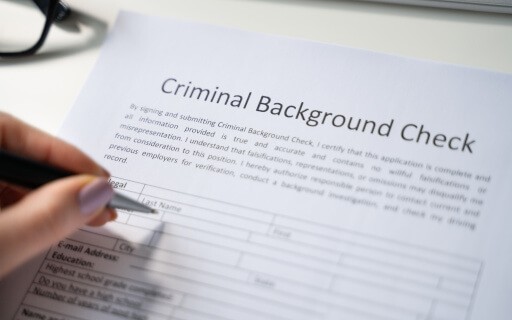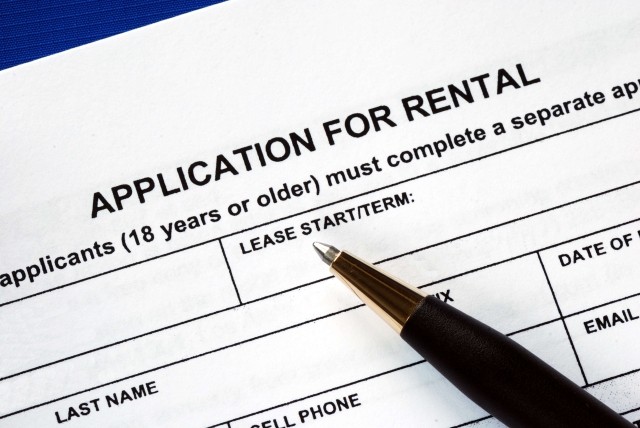
Checking an applicant’s credit is an important part of the tenant screening process. A rental credit check gives you insight on an applicant’s spending habits and whether they pay their debt on time, which is a good indicator of whether they will pay their rent on time every month. Before you start screening your next applicant, let’s go over everything you need to know about rental credit checks.
In this article:
- Credit Check vs. Background Check
- The Tenant Screening Process
- What to Look for in a Credit Check
- Common Questions About Rental Credit Checks
Credit Check vs. Background Check
First and foremost, a credit check and a background check are not the same thing. Although a credit check is often confused as being part of a background check, it’s not. A background check includes criminal and eviction history, while a credit check provides the applicant’s credit score. If you’re interested in more than just a credit score, you can run a full credit check that will provide a more detailed account of the tenant’s credit history.
The Tenant Screening Process
Although credit and background checks differ, both are included in the tenant screening process. Background and credit checks are important to evaluate whether a renter will be a good tenant.
Be sure to require an applicant’s proof of income and landlord and/or employer references in addition to a background and credit check. If you have income requirements set up for your tenants, then it’s vital to ensure they make enough money to pay the rent, security deposit, and other required fees. The entire tenant screening process will give you a look into the tenant’s rental, employment, criminal, and credit history.
How do I do a credit check on a potential tenant?
A credit check and a background check are, however, included in the tenant screening process. When you accept applications and screen tenants through Apartments.com, you will receive comprehensive credit reports from TransUnion. These full credit reports provide more than just the applicant’s credit score, but a breakdown of their total reported debt, payment history for credited accounts, and employment and address history as well. You will also receive extensive and reliable background checks from TransUnion that include criminal and eviction reports, giving you a better look into the tenant’s past. These reports are run as soft inquiries, so rest assured that they won’t negatively affect the applicant’s credit and are at no additional cost to you.
What to Look for in a Credit Check
After you’ve received an application for your rental, it’s time to run a background check and a credit check. When you receive the credit report, look for these four things:
1. Credit score
The credit scale is between 300 and 850, and the general industry follows these guidelines:
- 800+ = Exceptional
- 740-799 = Very good
- 670-739 = Good
- 580-669 = Fair
- 579 or lower = Poor
A potential tenant’s bad credit score doesn’t have to remove them from the running, but you should consider their score before approving the application. Rather than immediately declining their application, consider your options. Many landlords charge a security deposit based on a tenant’s background and credit check, so if the tenant doesn’t meet all of your requirements, but you still choose to rent to them, you can require more money upfront or a higher security deposit. Before doing so, check your state laws to see if there are any security deposit maximums in your area. You could also consider asking the applicant to add a cosigner or guarantor to the lease.
2. Credit history
Credit history factors into the applicant’s credit score. In most cases, the longer they’ve had credited accounts, the higher their credit score will be. Other factors affect this, of course, including on-time payments or lack thereof. The longer a tenant’s credit history, the more information you will have to help make an informed decision during the application approval process.
3. Payment history
An applicant’s payment history is one of the most important aspects of a credit check. If a tenant doesn’t make their credit payments on time, then it’s safe to assume they may be a risk when it comes to paying rent on time. The applicant’s credit score essentially helps you assess their risk level. If they aren’t paying their bills on time, their credit score will take a hit. Although a late payment shouldn’t cause too much concern, repeated late or missed payments should flag your radar.
4. Credit limits and utilization
Credit utilization measures the amount of available credit the applicant is using. If your potential tenant is charging $1,000 per month of new charges on their card, and their limit is $2,000, then they have a utilization rate of 50 percent. You should consider the credit limit the applicant was approved for and how often they near that limit. If they are overspending or nearing their limit on a regular basis, it may be a cause for concern.
Common Questions About Rental Credit Checks
Running credit checks on applicants prior to approval is a great way to reduce the risk of any late or missed rent payments down the road. Let’s dive into some of the most commonly asked questions from landlords and property managers about rental credit checks.
Can a tenant provide a copy of their own credit report?
While it’s possible for a tenant to provide their own credit report, especially if they’re applying to more than one property and have pulled it in the last 30 days, it’s typically in your best interest as the landlord to run your own credit check (especially when it’s at no cost to either the landlord or tenant through Apartments.com). There may be regulations in your area about whether you can accept a report from the applicant, so be sure to check your state laws before doing so.
Are credit checks soft or hard pulls?
Credit checks can be either hard or soft pulls, but when you’re pulling applicants’ credit reports, keep in mind that a soft pull will not affect their credit score, while a hard pull will. Because of this, most landlords choose a soft pull. If you for some reason choose a hard pull, you should inform your tenants so they can give you permission to do so. When you tenant screen through Apartments.com, TransUnion’s credit report will be a soft pull.
How to handle applicants with bad credit
Bad credit does not have to be an immediate disqualification to rent, but it can be for some landlords. If you choose to be flexible with your credit policy, you can mitigate the risk in another way, i.e., requiring a larger security deposit, a co-signer, or first and last month’s rent up front. Keep in mind that some good renters have had difficult times in the past but are actively working to improve their credit score.
When should you require a cosigner?
Requiring a cosigner is often on a case-by-case basis, so it’s really up to you when to do so. If requiring a cosigner helps you mitigate the risk of a tenant with bad credit, then that’s what you should do. Make sure that if you do require a cosigner, you run a background and credit check on them as well.
Does a credit check replace pay stubs and W2 records?
Running a credit check does not replace pay stubs or W2 records. Both pay stubs and W2 records can be forged, further validating the importance of a full credit report. Pay stubs and W2 records, however, can often be used as proof of income during the tenant screening process. It’s best practice to run a full credit check and require proof of income.
Can you decline a rental application based on credit?
As long as your state laws allow, you can decline a rental application if the applicant does not meet your requirements to rent. Keep in mind, however, that a bad credit score does not necessarily mean the applicant will be a bad tenant, but it can be an indicator of their financial history. While you can suggest a co-signer or a higher security deposit, you are also within your rights to deny their application.











